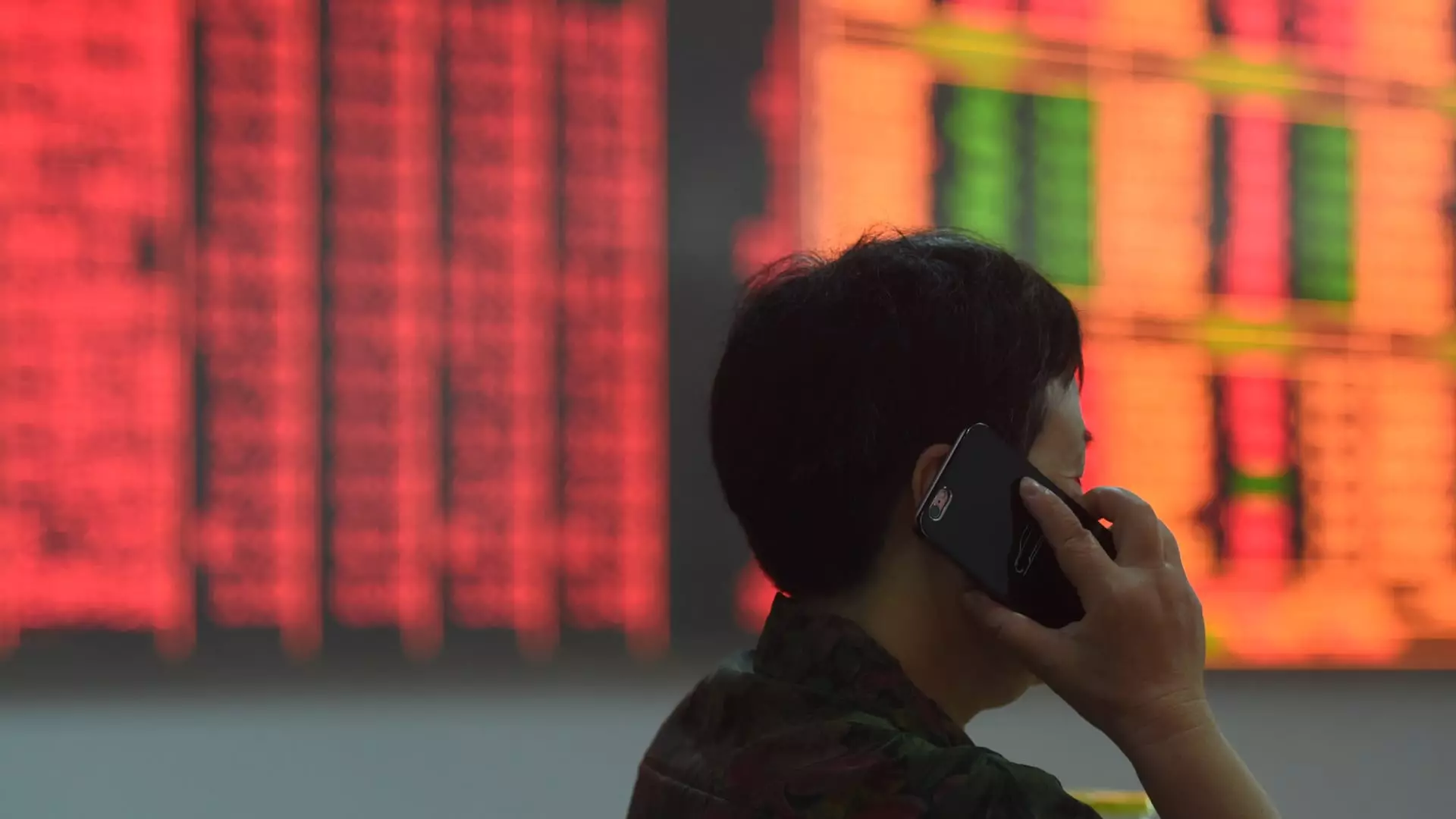In the ever-evolving landscape of global economics, China’s attempts to stabilize its faltering economy have become the subject of intense scrutiny. The recent rally in the Shanghai Composite Index—reaching a three-month high—marks a noteworthy moment amidst ongoing economic turmoil. This surge was largely prompted by reports of a high-level Politburo meeting led by President Xi Jinping, aimed at addressing the significant decline in the Chinese property market and reinforcing fiscal and monetary policy. However, beneath this façade of optimism lies a critical examination of whether these measures can genuinely address the deeper issues plaguing the economy.
While state media coverage portrayed the meeting as a proactive step towards recovery, analysts remain dubious about the effectiveness of these initiatives. Ting Lu, the chief China economist at Nomura, asserts that while the government acknowledges the gravity of the economic situation, the piecemeal solutions employed thus far have fallen short of producing meaningful change. The phrase “shock and awe” used by Lu characterizes the current approach, aiming to instill confidence and stimulate market activity. Nonetheless, the lack of specific policies raises questions regarding the long-term sustainability of this optimism.
The underpinnings of China’s economic retardation largely stem from the ongoing real estate slump, now in its fourth consecutive year. With retail sales barely scraping above two percent growth and industrial profits stagnating throughout much of the year, the need for a robust strategy to stabilize the housing market has become increasingly urgent. Without significant interventions, the ramifications are likely to ripple throughout various sectors of the economy. Analysts, including Lu, warn that any new stimulus is expected to yield only modest increases, estimating it would likely cap out at three percent of China’s annual GDP—far from what might be necessary to rekindle robust growth.
The People’s Bank of China has recently taken steps to cut interest rates, aiming to invoke renewed consumer confidence. However, such measures have yet to yield tangible results. Paul Christopher from Wells Fargo voiced concern that current policies do not sufficiently encourage consumer borrowing, as many households express trepidation toward financial commitments amid an unstable economic landscape. Despite governmental intentions to bolster borrowing through reduced mortgage rates, the absence of a comprehensive stimulus program deters immediate consumer trust.
Despite the mixed messages from the Chinese government, signals of potential recovery have sparked interest among some investors. The CSI 300 index saw a significant uptick, suggesting a temporary boost in market confidence. Laura Wang from Morgan Stanley hinted that the index could rise by another ten percent shortly, reflecting a burgeoning belief among investors that the recent governmental discourse signifies a forthcoming commitment to a healthier economic environment.
Yet, caution remains prevalent. The dilapidated state of consumer and business confidence has not vanished overnight. Shehzad Qazi from the China Beige Book pointed out that corporate borrowing has taken a downturn even in the face of lowered costs. With investors hoping for a ‘wealth effect’ from property and stock recovery, one must note that foundational issues still pose barriers to sustained growth. The potential for temporary upticks is overshadowed by the persistent pitfalls within the real estate sector that could hinder long-term stability.
Interestingly, the reactions to these policy shifts are not limited to the confines of China’s borders. The muted response from global investment institutions reflects concerns regarding the extent and depth of stimulus measures to counteract the pronounced psychological damage inflicted upon household and business sentiment. For example, David Tepper, a prominent hedge fund figure, noted an unexpected vigor in the markets that now suggests a paradigm shift within investor confidence.
High-stakes conversations in the media frame China’s decision-making as indicative of a broader strategy to reengage with international investors who have remained skeptical in recent years. Bruce Liu, CEO of Esoterica Capital, elucidates that an emphasis on a well-functioning capital market is vital for sustainable growth moving forward. He argues that positive intentions from high-level meetings must be coupled with actionable policies to encourage real change in both economic and investor sentiment.
While recent developments in China’s economic approach suggest an overt commitment to positive shifts, the enduring structural issues within the economy require comprehensive and well-developed policy actions. Markets may respond favorably to headlines, yet investors must remain vigilant against superficial gestures. The intricate dance of policy-making and investor sentiment will ultimately dictate not only the trajectory of the Chinese economy but also its repercussions on global financial stability. Without a significant pivot towards sustained, thoughtful interventions, the enthusiastic temporary rallies may foreshadow deeper-rooted discontent within China’s economic framework.

Leave a Reply